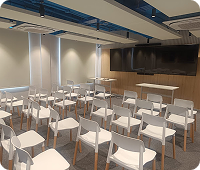We're working on curating more amazing courses for you! Until then, why not explore other categories or let us know what you're interested in? Your next learning adventure awaits!.

Try our course navigator
Book a visit at our learner hub
“A Learner Hub is an NIIT facility where you can meet Career Advisors, explore programs, and experience NIIT’s learning ecosystem in person.”



Delhi
1st Floor, Chawla House, 19, Nehru Place
Mumbai
2nd Floor, Merchant Chamber, 98 -A, Hill Road
Bengaluru
3rd Floor, HJS Chambers, 92, Richmond Road
Chennai
2nd Floor, House No 137, AC Block, 2nd Ave, Annanagar
Gurugram
NIIT Limited, Plot No 85, Institutional Area, Sector 32
The NIIT advantage
NIIT empowers learners with innovation, expert guidance, and placement assurance, offering trusted leadership in learning and building future-ready skills and careers.

About NIIT Digital
As online and remote learning become mainstream, NIIT Digital provides a robust platform that enhances effectiveness and efficiency. With a mission to deep skill the nation’s youth, it delivers new-age, online, instructor-led tech courses along with placement assurance, empowering learners through quality education and ensuring meaningful transformation for future-ready careers.
Learner speaks

Learner success stories
"Choosing the gNIIT program was the best decision .I turned my passion into a profession"

Ruchika
"Making a career switch is never easy. Joining Niit was one of the best decisions I have made during this crucial stage of my life. I would like to thank the NIIT for such an incredible course. The course was designed such that there is enough time for practice and the given assignments are challenging enough. The mentors here are very supportive through out the course.The placement team is doing a great job by conducting multiple sessions to help us prepare for the job interviews. The package provided to me is higher than what was promised."

SANDEEP GANDE
This course was incredibly rewarding. Conducted online by excellent mentors, the pace was well-balanced—not too fast, not too slow. It was thoughtfully designed with enough challenges, and the faculty provided strong support to help us overcome them. Initially, I was skeptical, but the program turned out to be life-changing. The placement service was excellent, and the package I received exceeded expectations. Special thanks to Shradha Ma’am for her motivation and guidance in helping me secure a great offer.

Manikandan S
A mentor is someone who sees more talent and ability within you than you see in yourself—and helps bring it out. That’s exactly what I experienced at NIIT. From day one, the focus was on building strong fundamentals and understanding how to develop a product from scratch. Being mentored by such dedicated faculty was a blessing. Each of them played a key role in shaping not just my technical skills but also my mindset. By the end of the journey, I had the confidence to build real products and take ownership of my work. It was a transformative experience.

Abhishek Gupta
My journey with NIIT was truly enriching. The program offered a wide spectrum of learning experiences, from understanding core concepts to applying them in real-world scenarios. One of the highlights was building a recommendation engine and working on a capstone project that helped strengthen my technical skills. The mentors were supportive throughout, always ready to guide and clarify doubts. It was a fun and rewarding experience that gave me a clear roadmap to grow as a software engineer.

Anindo Sobhakar
CGI
“The course material and mentoring approach were excellent. Collaborating with peers online was a great experience, and the mentors did an outstanding job of communicating and creating a supportive learning environment. It’s a very solid course, and I learned a lot throughout the journey. Special thanks to all the mentors — Komilla, Lopa, Vinod Raju, Sriraman, and Kshijit — and to the placement team for helping me secure a position. A heartfelt thanks to Shraddha Ma’am for her constant support during the placement process.”

Baathuku Rishika
Trusted by 800+ hiring partners
Awards & acknowledgement
Recognised as
Best Tech Skilling EdTech Company
by Times Business Awards in 2022
Recognised as
Trusted Brand in Education
by Prime Insights in 2023
Recognised as
Gold Winner – Learning Excellence
by Global Learning Awards
Global Recognition in Education & Skilling
Our journey of 40+ years has been recognised with prestigious awards across continents — reaffirming our commitment to shaping futures and empowering learners worldwide.











